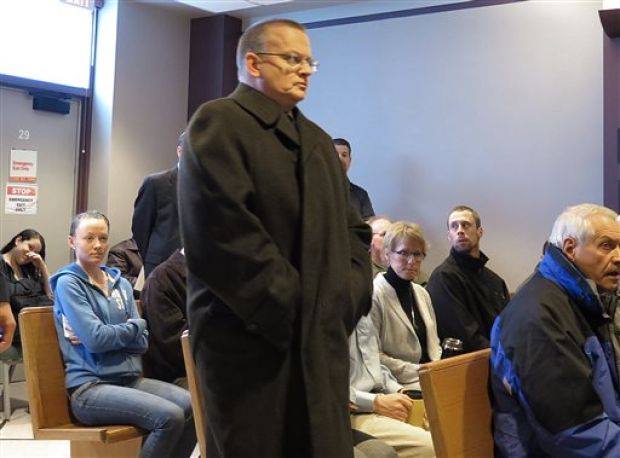Governor-elect Tony Evers is still a few weeks away from taking office and once again the Republicans in the Wisconsin Legislature are rounding up ways to usurp his authority and the preferences of the voters in the State of Wisconsin.
Wisconsin is on a biennial budget cycle and the incoming governor will be suggesting a new budget for fiscal 2019 – 2021. He and Lieutenant-governor elect Mandela Barnes have been touring the state and holding OPEN town hall meetings in public facilities to hear what Wisconsin residents need from their state government. The expectation being that the wishes of the constituents would influence the decision on where to spend Wisconsin’s money. Well the Republicans in Madison are apparently having none of that!
In a shift from recent past practice, the Republican leader of the state Senate said Thursday he assumes GOP lawmakers will craft their own plan for the next state budget instead of building from what’s proposed by Democratic Gov.-elect Tony Evers.
Assembly Speaker Robin Vos also hinted at that possibility Thursday in an interview with the Wisconsin State Journal. Vos, R-Rochester, said whether Assembly Republicans build from Evers’ plan for the next budget could hinge on whether Evers proposes to raise taxes or expand Medicaid — both of which Assembly Republicans oppose.
So the very cornerstone of the Evers gubernatorial campaign…expanding Wisconsin’s Medicaid program needs to avoided by simply ignoring it in a GOP developed budget. They obviously don’t have the political courage to allow Mr. Evers to exercise his authority to write a budget…include the programs he promised during his campaign…and then pull them from the budget in the legislature. So much for supporting the voters decisions. So much for transparency in Madison. So much for allowing democracy work as originally designed!
The reply from the governor elect:
Evers’ office responded by noting he has been touring the state to hear what Wisconsinites want in the next state budget.
“It’s unfortunate that Speaker Vos and Majority Leader Fitzgerald are once again going to ignore the will of the people of Wisconsin by disregarding a budget crafted by and with the people of our state without ever having seen it,” Evers spokeswoman Britt Cudaback said. (emphasis mine)
But I suppose I should let House Speaker Robin Vos have his say too:
In an interview, Vos drew a red line on tax increases, saying Assembly Republicans “are not going to raise income or sales taxes, period.”
“If (Evers) starts with a massive tax increase, well, that means his entire budget is built on a house of sand,” Vos said. “So we’ll have to sweep it away, and start all over with what we have said, which is we’re not going to raise taxes.”
I guess I really wonder what Rep. Vos and Sen. Fitzpatrick are afraid of. They control both houses in Madison by a fair margin. If the governor proposes tax increases, they can start their song and dance about tax and spend liberalism ad infinitum. Why are they afraid to let that stuff come out of the governor’s office? Because maybe the voters are starting to see through their charades?
And as a side note: I don’t have a dog in this fight but there were a fair number of referenda in November concerning the legalization of marijuana in one form or another. They all won by very large margins. But the Madison Republicans are tone deaf to this too:
Fitzgerald also said he doesn’t think Senate Republicans will support legalizing medical marijuana, as Evers does.
“I don’t see it,” Fitzgerald said. “I don’t support it.”
And Senate Majority Leader Scott Fitzgerald’s final word?
Fitzgerald said a budget deal with Evers “can be done” but said he has been discussing with Vos the prospect of GOP lawmakers crafting their own budget.
And the last word from the Wisconsin State Journal?
That’s a sign of the new dynamic at the state Capitol under divided government starting in January. For the last eight years GOP lawmakers used Gov. Scott Walker’s budgets as a starting point to craft the state’s two-year spending plan. (emphasis mine)



Recent Comments